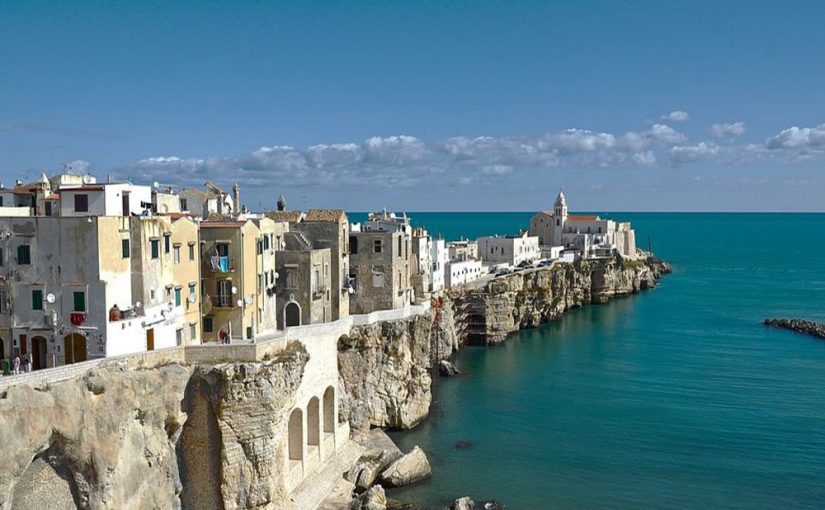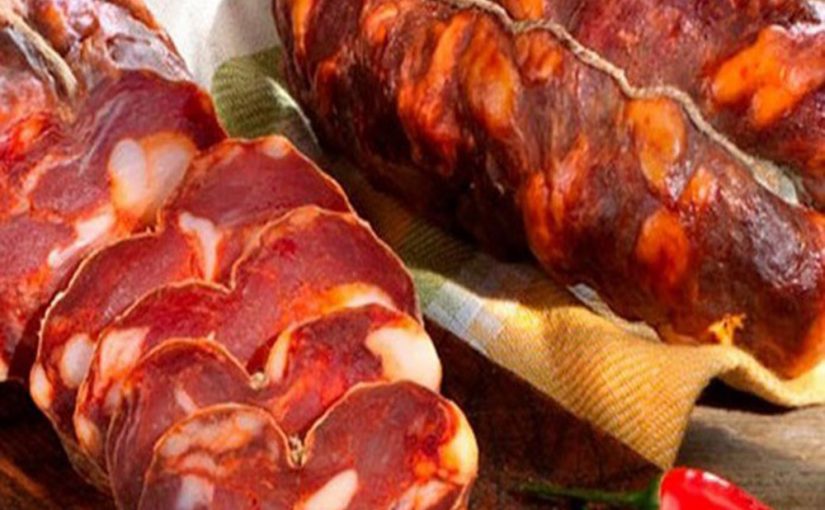22.02.2018
THE FOOD OF CALABRIA: Mediterranean Tastes
The distribution of the olive tree over the Mediterranean Basin and that of the olive tree make become Mediterranean cuisine a special methods of preparation by people of the Basin region, especially those of Southern Europe.
The idea of a cultural ground of Mediterranean cuisine originates with the cookery writer Elizabeth David’s book, her book of Mediterranean Food (1950) is a breakpoint moment in the history of re-discovery of such ancient gastronomy, based on oilve oil, bergamot scents, wine, thought and action of mediterranean people.
The cores elements of such culture (which is important aso for world export of many products) are, according her and other writers, including the Tunisian historian Mohamed Yassine Essid, the olive, the wheat, and the grape.
Many writers emphasize the diversity of the region’s foods and deny that there is a common concept. The region spans a wide variety of cultures with distinct cuisines, but olive oil, food, Citrus fruits and wheat unify all. In particular (going anticlockwise around the region) in the the Maghrebi, Levantine, Ottoman (Turkish), Greek, Italian, Provençal (French), Spanish, and Portuguese gastronomies, these elements are always common.
Concusively, the historical connections of the region, as well as the impact of the Mediterranean Sea on the region’s climate and economy, implies that these cuisines share also dishes, beyond the core trio of oil, bread, and wine, such as roast lamb or mutton, meat stews with vegetables and tomato (for example, Spanish andrajos and Italian ciambotta), and the salted cured fish roe, bottarga, found across the region. Spirits based on anise are drunk in many countries around the Mediterranean.
MEDITERRANEAN SEA: The location
The cooking of the Mediterranean shores implies that the geographical limits are from Gibraltar to the Bosphorus, down the Rhone Valley, through the great seaports of Marseilles, Barcelona, and Genoa, across to Tunis and Alexandria, embracing all the Mediterranean islands, Corsica, Sicily, Sardinia, Crete, the Cyclades, Cyprus, to Greece, Syria, Lebanon, Constantinople, and Smyrna.

Inside such regions is coextensive the range of the olive tree, limited by frost and by availability of water, inside a more or less narrow zone around the Mediterranean Sea, excepting Maghreb and Spain. Further, olive does not grow in most of France, Balkans and the North of Italy (except Liguria coast).
OLIVE, WHEAT AND GRAPE: Key ingredients of Calabrian Food
Traditional Mediterranean cuisine has 3 key ingredients: the olive, wheat, and the grape, as yielding oil, bread, and wine respectively.
The archaeologist Colin Renfrew called them the “Mediterranean triad”.
Olive spreads from Mediterranean coasts to nearby areas, and has been cultivated since the early Bronze Age (up to 3,150 BC) in southern Turkey, the Levant, and Crete. The ten countries with the largest harvests (in 2011) are all near the Mediterranean (Portugal being the tenth largest): together, they produce 95% of the world’s olives.
The olive appears to come from the region of Persia and Mesopotamia, at least 6,000 years ago. The Mediterranean region accounts for the world’s highest consumption of olive oil. Two Calabrian types of olive (Nocellara and Carolea) have reputation as two of the six best olives of the world.

Wheat was domesticated in the Fertile Crescent, in and near the Levant some 10,000 years ago. Now, wheat is a staple food in the Mediterranean region; before, it was already critically important in the empire of Ancient Rome, which included the entire region. Any staple wheat-based Mediterranean foods include pasta and semolina products such as couscous and burgul. These are made into dishes such as the Greek dessert galaktoboureko (milk börek), consisting of filo pastry parcels around a custard made with semolina. Many cakes and dessert of Calabria embodies such derivatives of wheat.
The Grape was domesticated between 7,000 and 4,000 BC, between the Black Sea and Persia, but winemaking started in Italy in the ninth century BC, and in France around 600 BC. About Calabria, Pliny the Elder writings are one the first historical trace of wine production in the region of Calabria, he testified that during the 1st century AD Calabrian wine were just in Romans listings of quality Italian wines. Even if slowly, Calabria developed a vibrant wine industry with only the red wines of CIRÒ, while many of its wonderful wines have a regional and national distribution.

CULTURE AND HISTORY: Europe and Calabria
The connection between European and Mediterranean cusine and Calabria is strong. The concept of a Mediterranean cuisine is very recent, probably dating from the publication of David’s A Book of Mediterranean Food (1950), but it defines a complex set of dishes, often similar.
For example, a dish of roast aubergines and peppers (often called by its Provençal name, ratatouille, in English), as interpreted on the Aeolian Islands, is very similar to Calabrian “Cianfotta” or to “Ciambotta” from Neaples.
Mediterranean food is incredibly popular. It is full of well-known specialties: pasta, pizza, sausage, wine, gyros, kebab, and falafel.
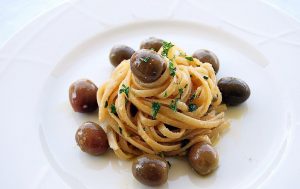
They can be found just about everywhere and rules for the preparation and consumption of such food are common to the lands that border the Mediterranean. Wherever you go, in southern Europe or the lands bordering the southern Mediterranean, you will find a cuisine and gastronomic ritual which is always familiar.
Therefore, the concept of the “standard Mediterranean cuisine” … is real, but it is also a modern construction of food writers and publicists in Europe and North America, by invoking a stereotype of the healthy other on the shores of the Mediterranean.
Maybe, there really is no such thing as ‘Mediterranean cuisine’. At the same time, we seem to know what we mean when we use the expression, mainly relating to Mediterranean coasts, given that only 4 percent of her recipes come from North Africa or the Levant.
GENERAL CULINARY SPECIALTIES: inside Calabrian tastes
Certain foods are pan-Mediterranean, such as Bottarga, the salted, cured roe of fish such as the grey mullet. We can find them also in Calabrian cusine.
The ever recurring elements in the Calabrian food are olive oil, saffron, garlic, “pungent” local wines, as well as the “aromatic perfume” of herbs, especially rosemary, wild marjoram, and basil, and the bright colours of fresh foods in the markets, “pimentos, aubergines, tomatoes, olives, melons, figs” and “shiny fish, silver, vermilion, or tiger-striped”.
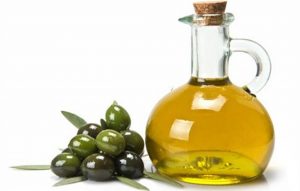
For example, from Turkey we in Calabrian cuisine any cheeses of “sheep’s or goat’s milk”. But generally, we have in Calabria many common ingredients including the olive, wheat, and grape; a shared climate; and a long period for cultural exchange, so that it might be expected that a single, pan-Mediterranean cuisine would have developed in this region (Calabria).
Certain items, such as olive oil, bread, wine, roast lamb or mutton (for example) come from Maghreb méchoui, Greek kleftiko and souvlaki, Turkish shish kebab. In the same way Calabria receives from abroad bottarga and stews of meat with vegetables and tomato (such as Spanish andrajos, French estouffade à la Provençale, Italian ciambotta, Turkish buğu kebabı), which are indeed found all around the Mediterranean.
Despite this, however, the lands bordering the Mediterranean sea, like Calabra, have distinct regional cuisines, from the Maghreb, Levant and Ottoman to the Italian, French, and Spanish. Each of those, in turn, has national and provincial variations.
In example, Maghrebi cuisine includes the cuisines of Algeria, Libya, Morocco, and Tunisia. One of the most characteristic dishes of the region is couscous, a steamed, small-grained wheat semolina, served with a stew. Calabria receive, occasionally, some influences in its dishes, cooked in the owen.
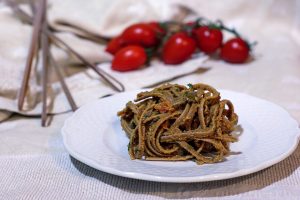
From Egyptian cuisine, which has ancient roots (for example, cheese has been made in Egypt since at least 3,000 BC), Calabria receives some recipes similar to Egyptian Kushari, a foreign-derived 19th century dish of rice, lentils and pasta, variously garnished.
From Levantine cuisine, entered into Calabria imitations of small meze dishes such as tabbouleh, hummus, and baba ghanoush.Tabbouleh is a dish of bulgur cracked wheat with tomatoes, parsley, mint and onion, dressed with olive oil and lemon juice. Baba ghanoush, sometimes called “poor man’s caviar”, is a puree of aubergine with olive oil, often mixed with chopped onion, tomato, cumin, garlic, lemon juice, and parsley.
Greek influence is present with dishes revealing Arabic, Persian or Turkish roots: moussaka, tzatziki, yuvarlakia, keftes and other. Greek cookery makes wide use of vegetables, olive oil, grains, fish, wine and meat (white and red, including lamb, poultry, rabbit and pork), well present in many Calabrian recipes based on important ingredients as olives, cheese, aubergine, courgette, lemon juice, vegetables, herbs, bread and yoghurt.
Some Greek dishes are present under the appearance of lentil soup, fasolada, retsina (white or rosé wine flavoured with pine resin) and pasteli (sesame seeds baked with honey).
ITALIAN TRACES: Into Calabrian Tastes
Calabria adapts to local tastes some main Italian cuisine dishes, like spaghetti alle vongole, a typical Italian dish of pasta with clams.
Mediterranean Italian cuisine includes among its best-known and most characteristic foods: risotto, pizza in Neapolitan and Sicilian styles, and pasta dishes such as spaghetti.

Spaghetti dishes also vary. It may be eaten simply with Calabrian olive oil and garlic, without cheese, or with a sauce of red and ripe peeled tomatoes, cooked briefly and flavoured with garlic and either basil or parsley. One Calabrian variant includes pieces of bacon, onions fried in fat, garlic, stoned olives, and anchovies, served with olive oil and grated Parmesan cheese.
FRENCH TRACES: Into Calabrian Mediterranean Tradition
Provencal cuisine and Mediterranean French cuisine include the cooking styles of Provence, Occitania, and the island of Corsica. The well-known bouillabaisse and salade niçoise (Bouillabaisse is a substantial dish from the French port of Marseille) are present in the region of Calabria as combination recipes of fish such as crayfish, gurnard, weever, John Dory, monkfish, conger eel, whiting, sea bass, and crab. The dishes are cooked with Mediterranean vegetables and herbs, namely onions, garlic, tomatoes, thyme, fennel, parsley, bay, and orange peel.

Further, Calabria got an adapted version of Salade niçoisea, as a colourful salad of tomatoes, tuna, hard-boiled eggs, Niçoise olives, and anchovies, dressed with a vinaigrette.
SPANISH TRACES: Into Calabrian Mediterranean Tradition
Spanish paella with red peppers and mussels id adapted in Calabria. This special recipe of Andalusia, Murcia, Catalonia, Valencia, and the Balearic islands (originally from Valencia), which comes in many Spanish versions, in Calabria does not contain chicken, pork, rabbit, or shellfish, and is only sautéed in olive oil in a large shallow pan, with vegetables, and typically round-grain rice.
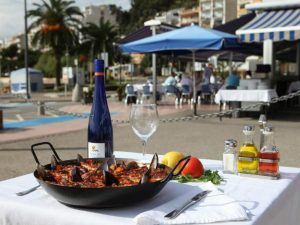
The Calabrian dish may be varied with artichoke hearts, peas, sweet peppers, lima beans, string beans, or sausages and is a simple “risotto with fish”.

